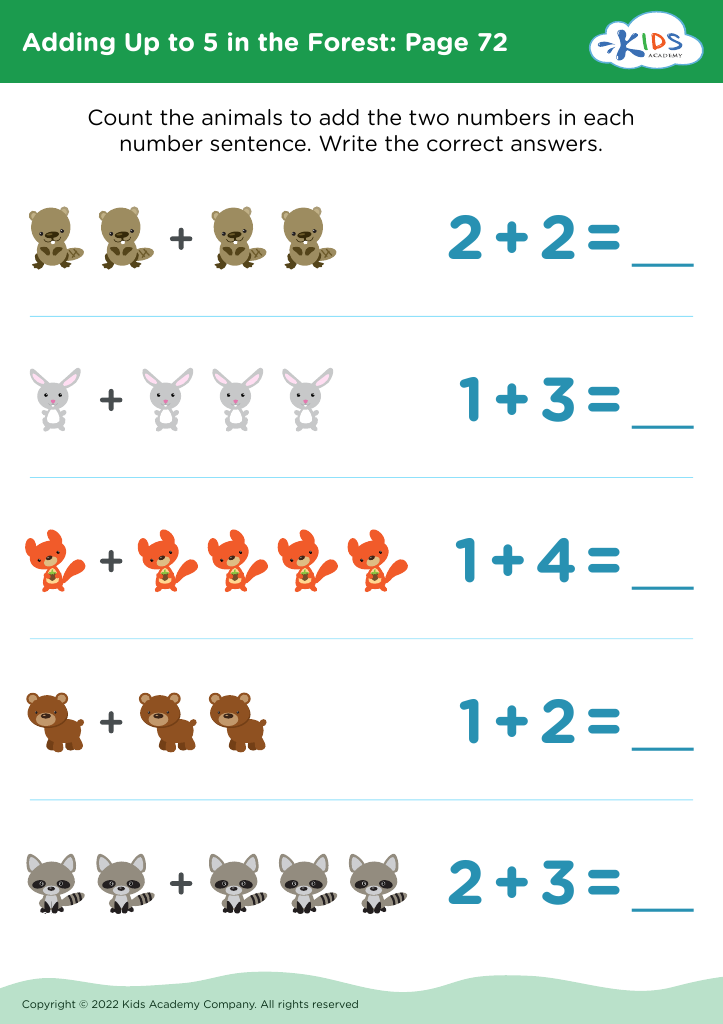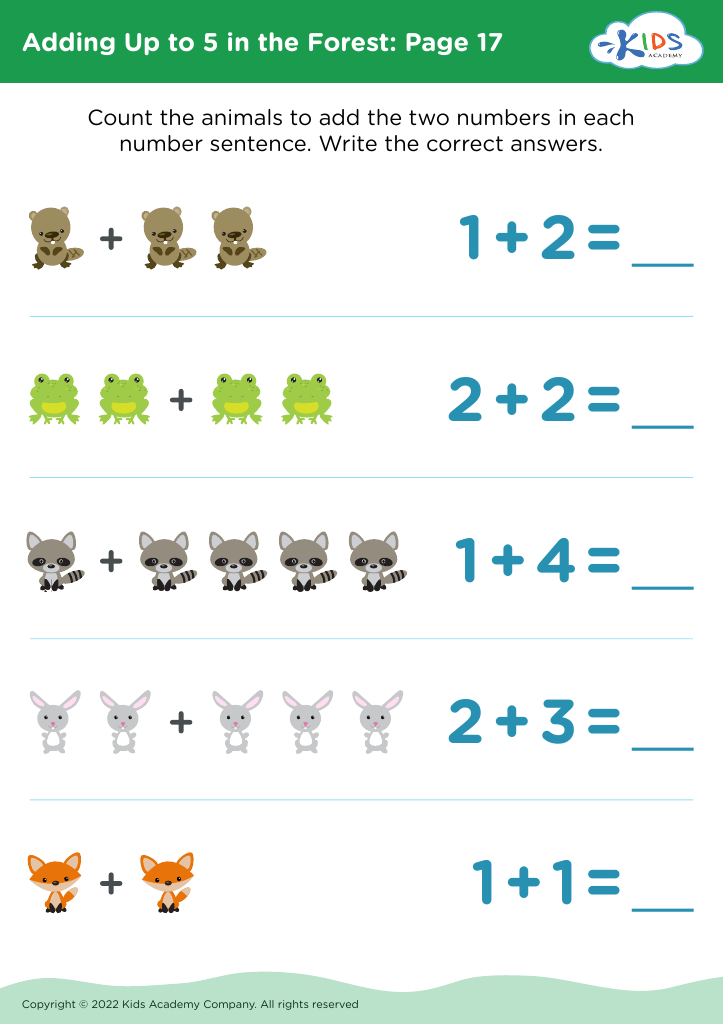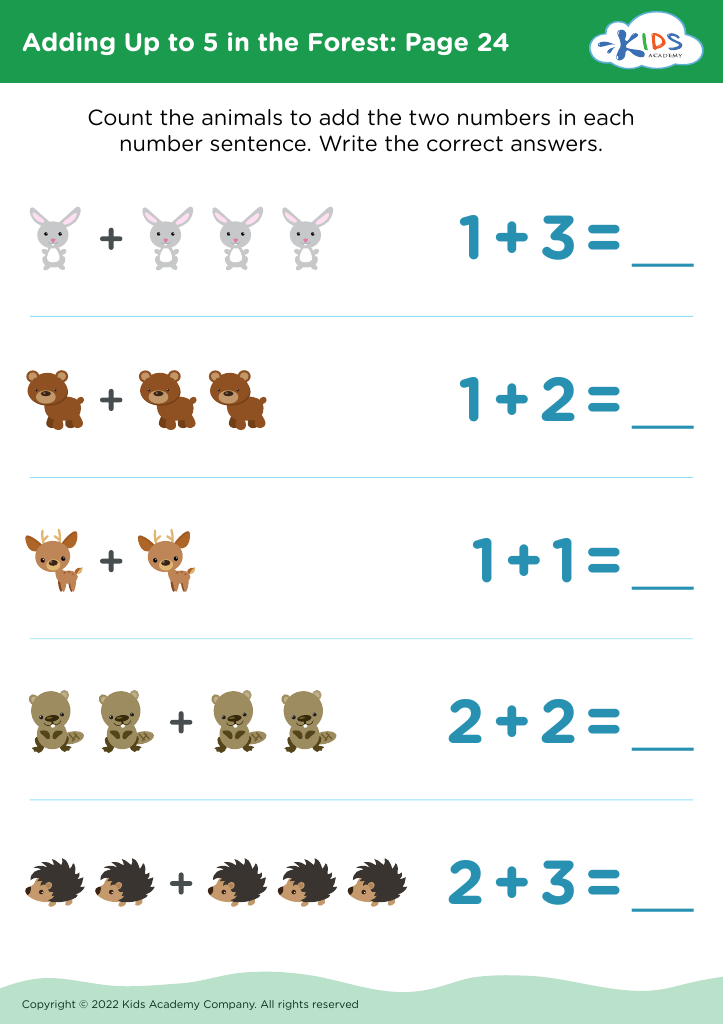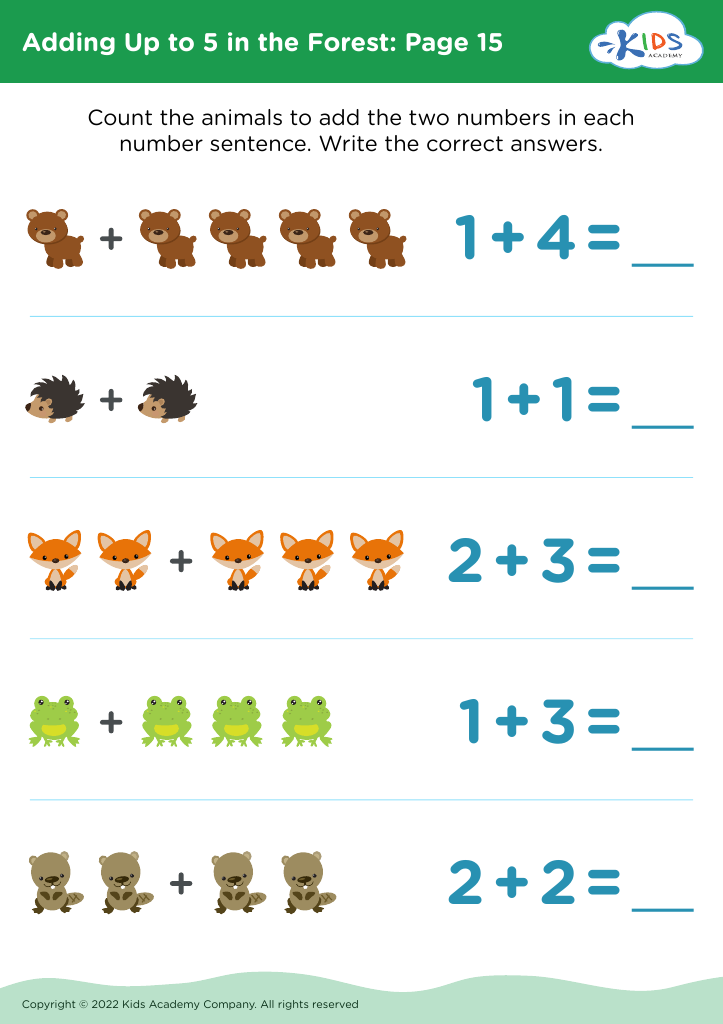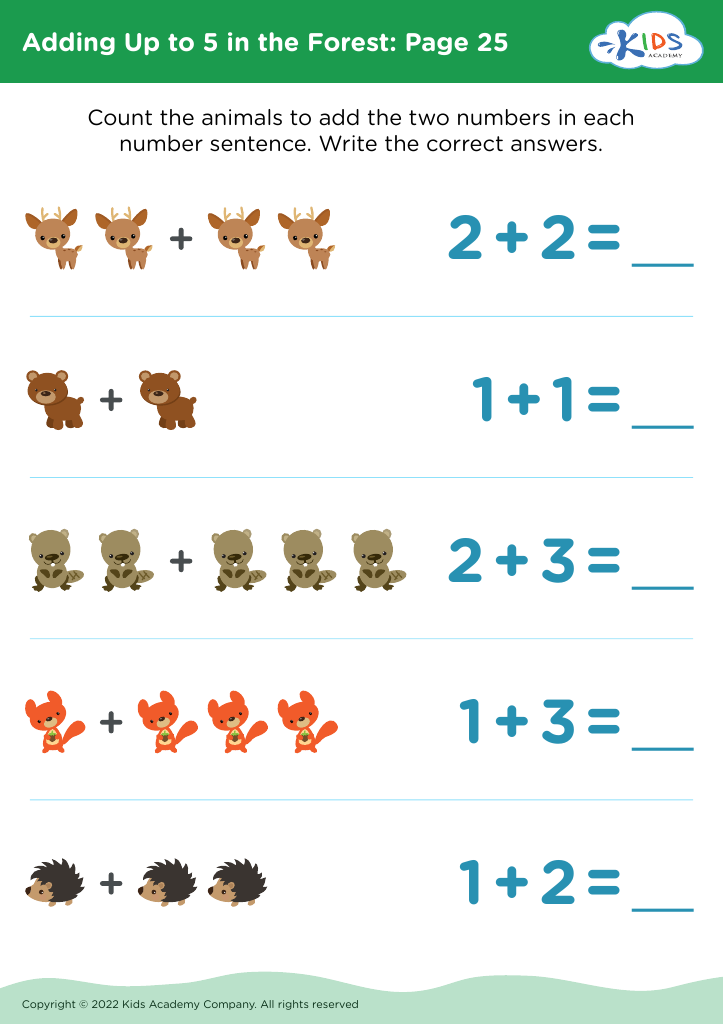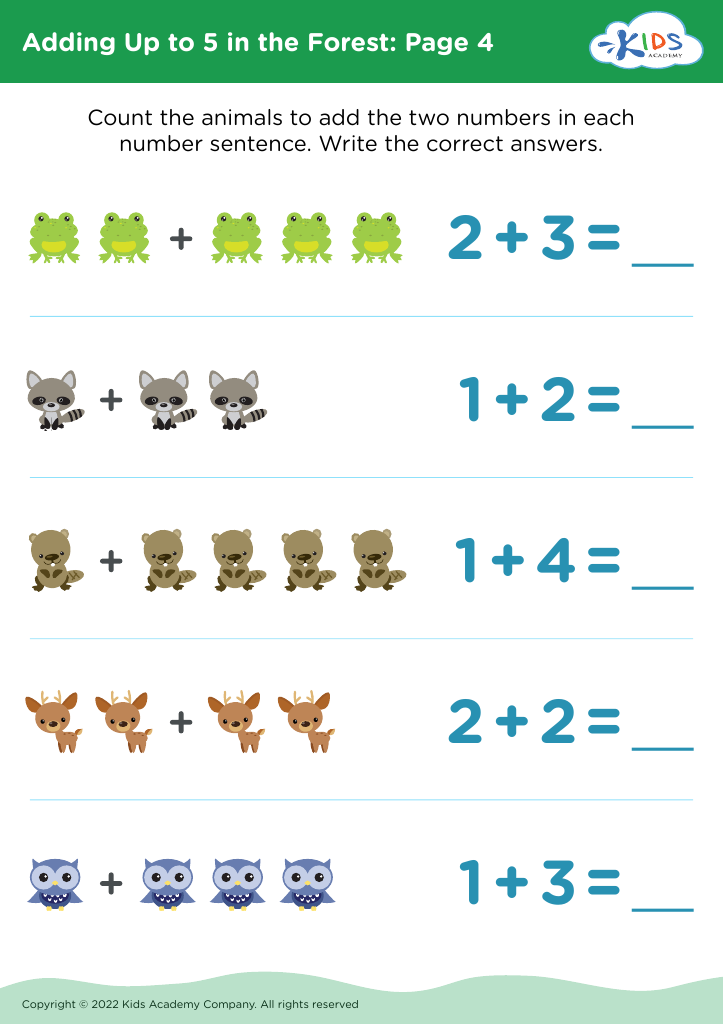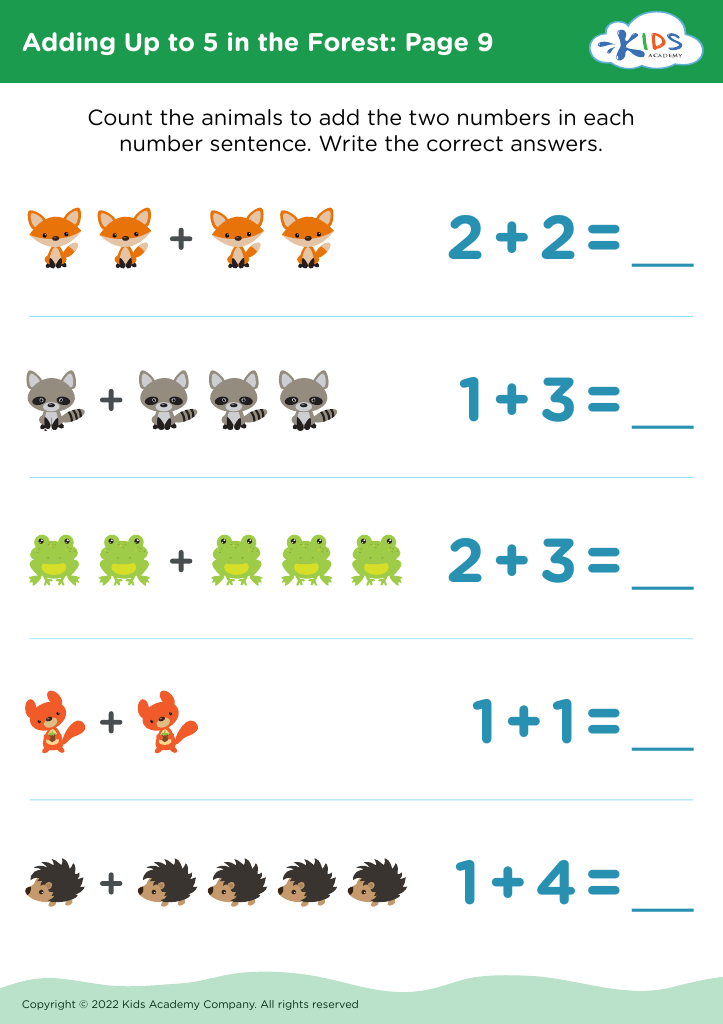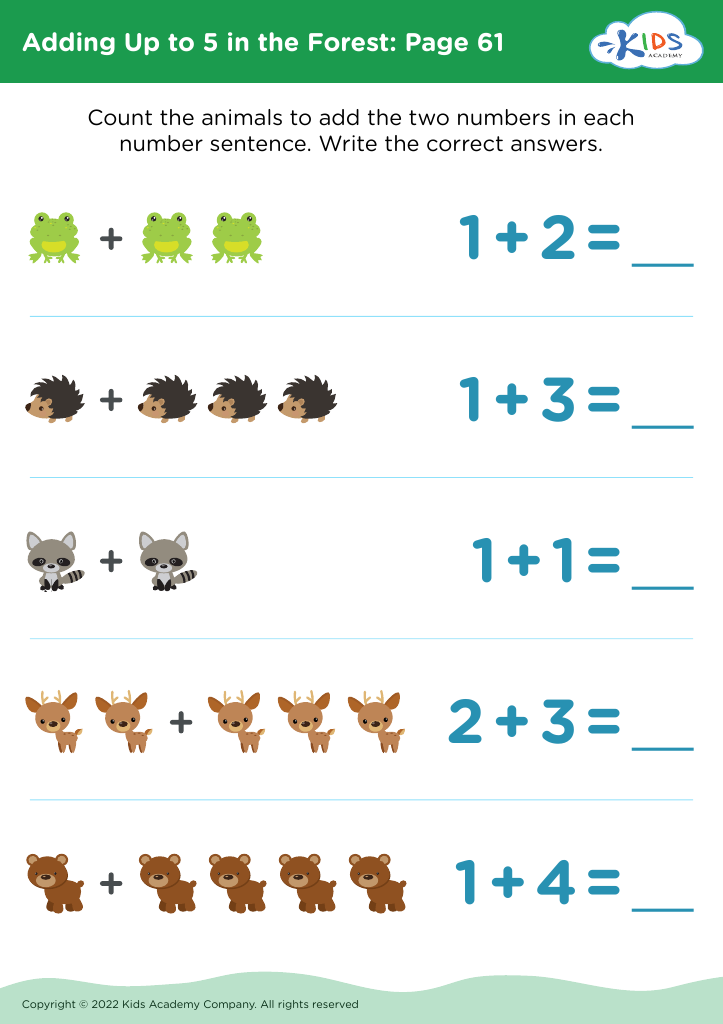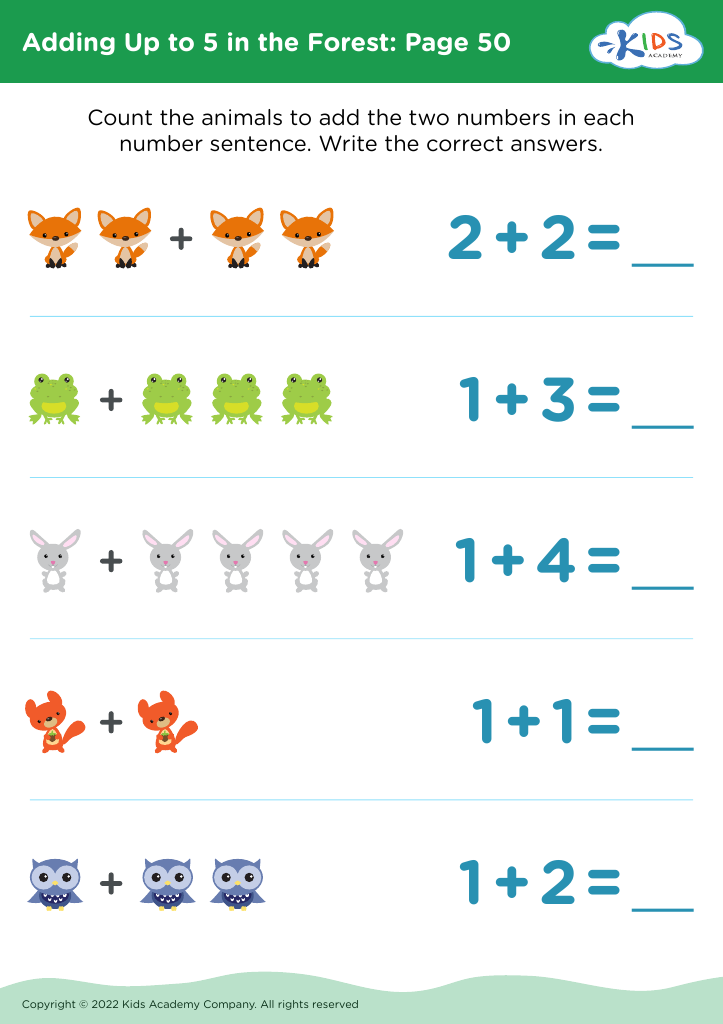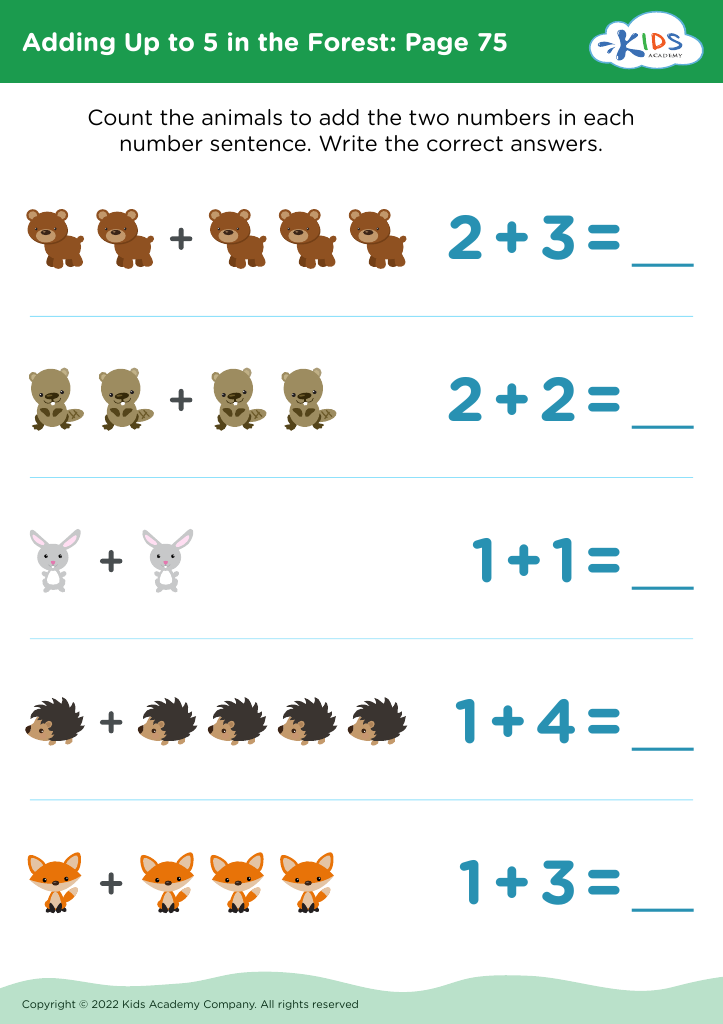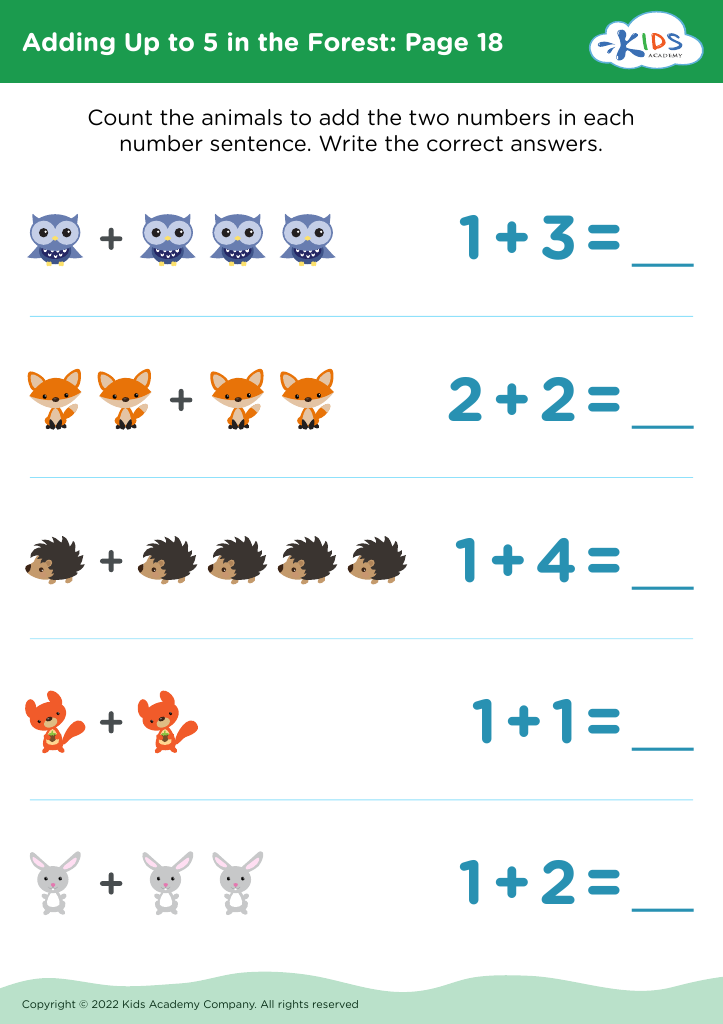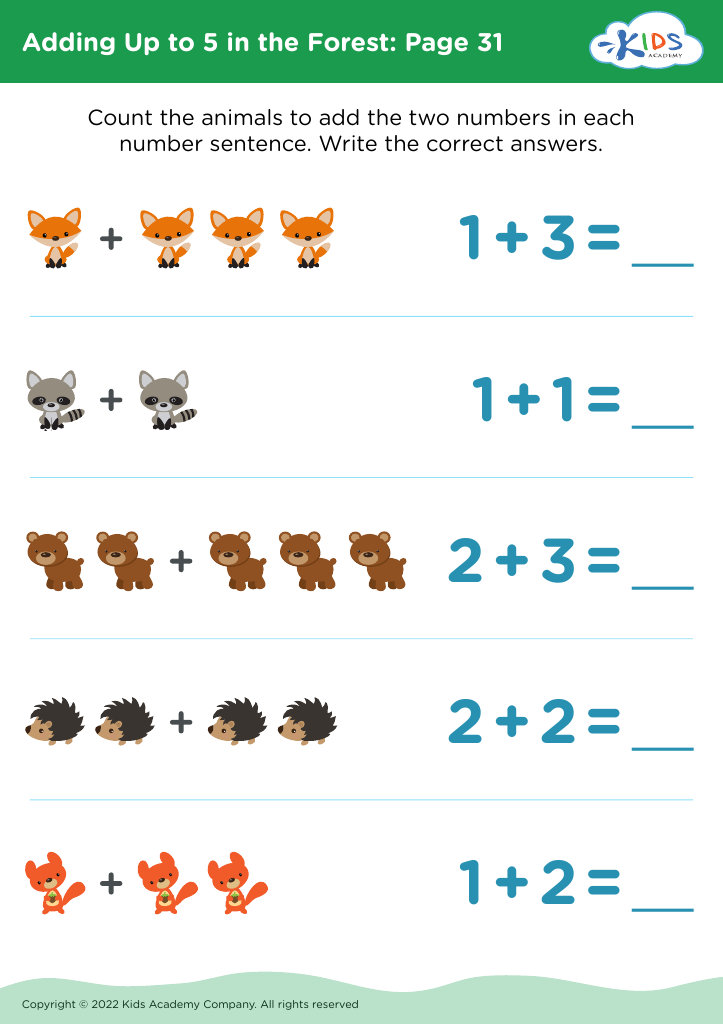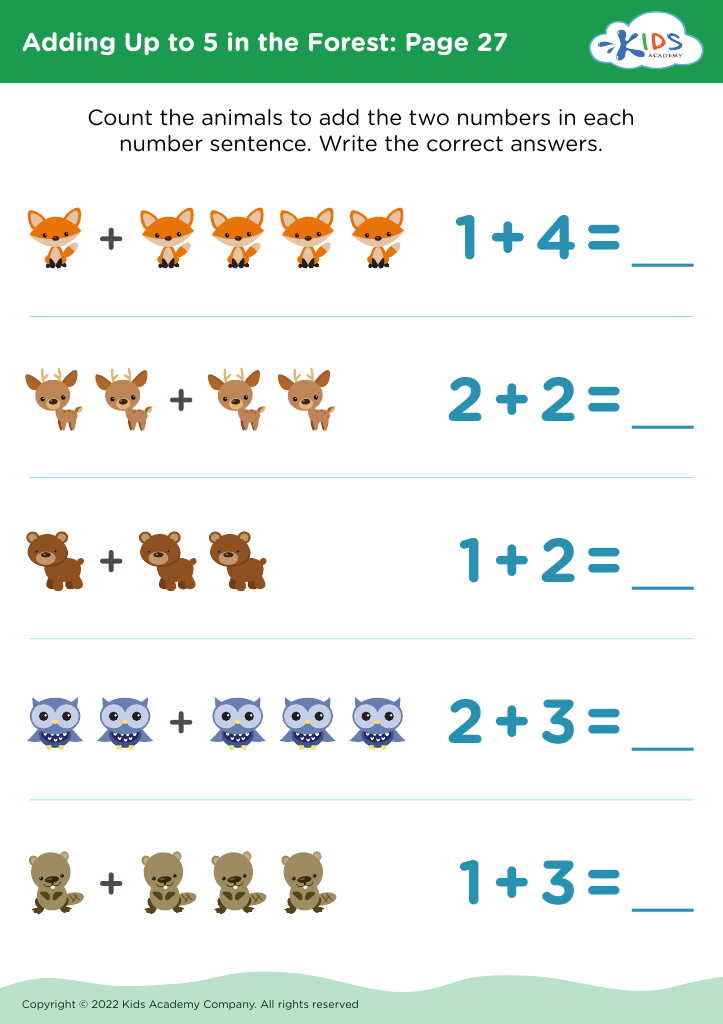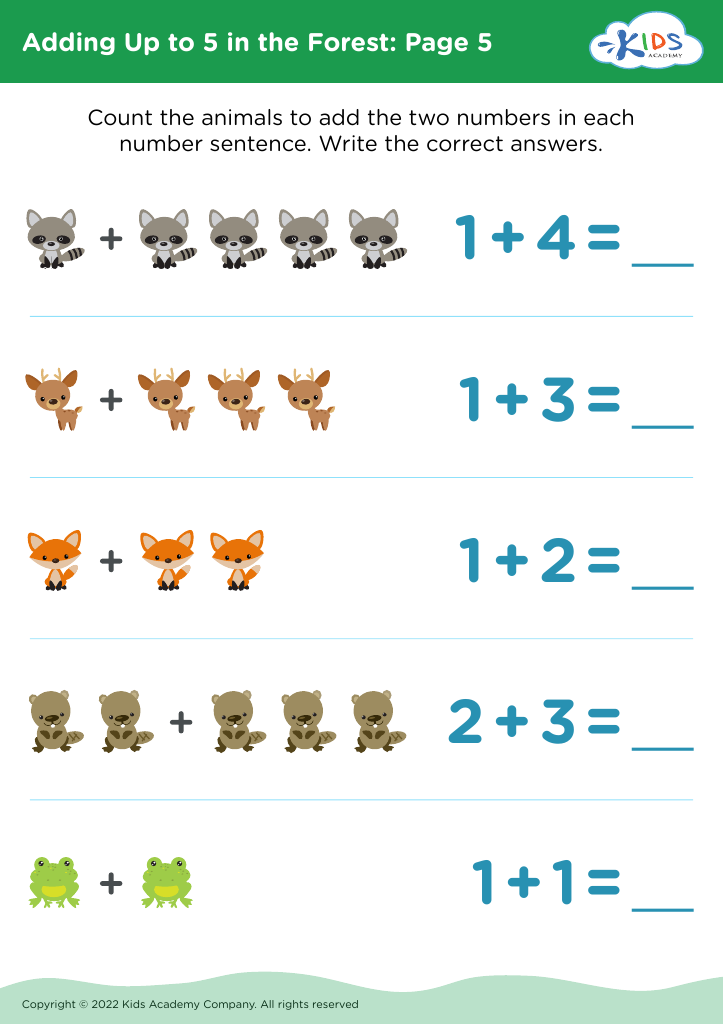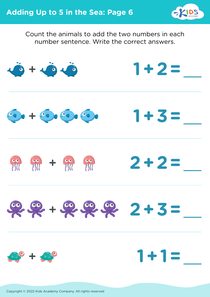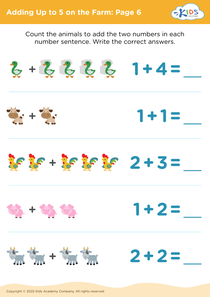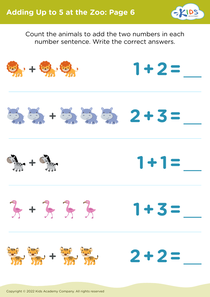Addition skills Adding in the Forest Worksheets for Ages 3-8
14 filtered results
-
From - To
Discover our "Addition Skills: Adding in the Forest Worksheets" designed for children ages 3-8! These engaging worksheets combine fun forest-themed illustrations with effective math practice, making learning addition enjoyable for young learners. Each activity encourages children to explore numbers and develop their calculation skills through interactive exercises that promote critical thinking. Perfect for parents and educators, these worksheets provide a hands-on approach to early math education, ensuring kids build a strong foundation in addition while exploring the wonders of nature. Dive into the adventure of learning today and watch your child's confidence in math grow!
Parents and teachers should prioritize addition skills for children aged 3-8, particularly through engaging activities like "Adding in the Forest." Early math competencies build a strong foundation for future academic success, fostering critical thinking and problem-solving abilities. Addition, as a fundamental math skill, is essential for daily life situations, developing numerical fluency, and enhancing logical reasoning.
Using hands-on activities like Adding in the Forest encourages active learning outside the traditional classroom setting, making math both fun and relevant. Such interactive experiences also promote curiosity and exploration, essential traits for young learners. By connecting math to nature, children can grasp abstract concepts in a tangible way, reinforcing learning through real-world application.
Moreover, mastering addition at an early age can boost a child's confidence and instill a positive attitude towards math, reducing future anxiety related to the subject. This positive reinforcement encourages persistence, helping children tackle more complex mathematical concepts as they advance in their education. Ultimately, fostering strong addition skills during these formative years equips children with the tools they need for lifelong learning, supporting their overall cognitive and social development. Teachers and parents can jointly reinforce these skills, ensuring children thrive both academically and personally.
